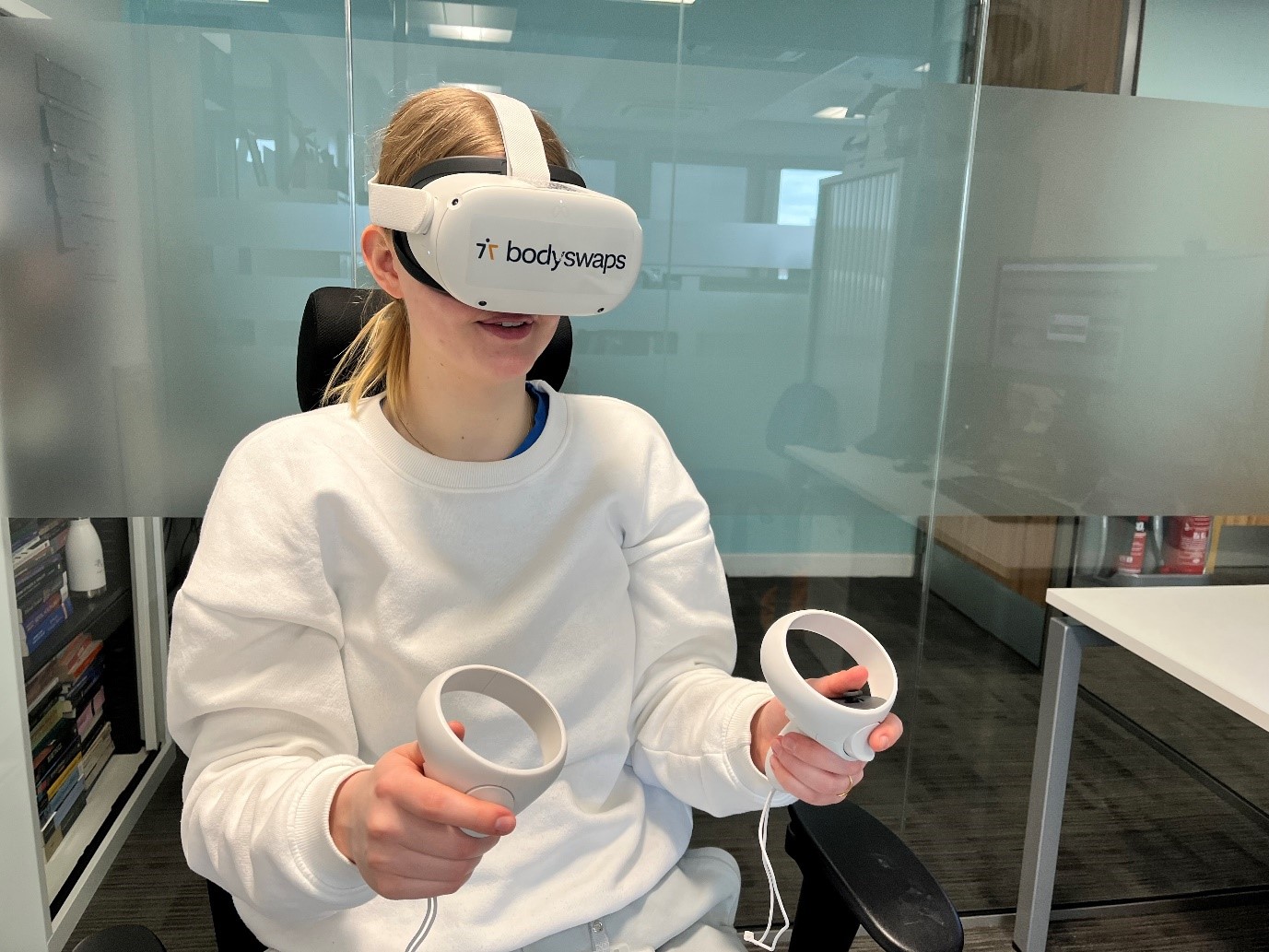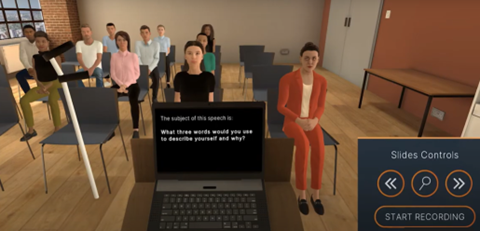Headsets Trial
Over the past few months, 106 colleges and universities across the globe had the opportunity to trial the Bodyswaps software on Virtual Reality (VR headsets). City St George's, University of London (formerly, St George's, University of London) was one of the 106. The university had access to the library of Bodyswaps training modules during the trial and participants could choose any module from a range including: Understanding conflict, The Mental Health practitioner, Clear Communications, Public Speaking & Presentation Skills, and Entering the workforce, to name a few.
Participants interacted with avatars during training. The avatars might play out a scene or ask questions and the participant responds. Feedback was given on their pace of speech, body language and eye contact. The "body swaps" aspect is where participants swap bodies with the avatar so they can see how they come across from another's perspective, hearing their own responses and viewing their body language. This seemed to work well, with some commenting on being comfortable with practising with avatars in a safe space, as avatars are not other humans but part of the software.
Interpersonal skills

Lara Egendal, Student Advisor Equity Champion who took part in the trial reflects on the experience of pilot testing the headsets. A key consideration was that VR offers new perspectives to think about skills:
As a medicine student, I have often seen disagreements amongst staff and between staff and patients. We are given training to augment our interpersonal skills throughout university. However, it is hard to emotionally engage in these sessions for a variety of reasons. This is where virtual reality training such as body swaps could make a massive impact.
I was lucky enough to have the chance to spend forty minutes going through some of those simulations, and it was absolutely fantastic. After the initial 5 minutes of giggling at the pleasantly bizarre experience of being in a virtual reality simulation, I ran through a simulation where I had to resolve a conflict between two work colleagues.
The simulation was highly realistic, and the intricacies of the conflict were well thought out which avoided the usual cliché nature some interpersonal skills training modules can have.
Empathy
Participants could run through all sorts of scenarios they might come across on the wards, and emotionally engage and prepare for them in advance. Such in-depth preparation would vastly better the mental toll that being on the wards can take. Moreover, depending on the scenario run, students can empathetically engage with scenarios they may witness but never be subjected to themselves. Discrimination against age, gender, race and ethnicity unfortunately happens in clinical environments. Giving students opportunities to run through such potential scenarios in a safe space via a highly engaging medium can give them insight and empathy towards students and staff who have faced discrimination. It may also give insight into the impact of our own words upon others.
Feedback on trial
There were 52 sessions with staff and students trialling the headsets. Participants felt the content was relevant and useful and a couple of educators wondered how effective it would be if delivered via desktops vs VR. Whilst the general feedback was positive, there were some niggles (as well as giggles). Glasses were tricky to fit into the headset, focusing (visually) was an issue for a few, and the headset can eventually feel heavy over time.


Augmented experience
After the sessions, all participants were invited to share their opinions about their experiences, and hopefully the results will give the university a better understanding of how VR may help with developing interpersonal skills.
Lara commented:
What struck me the most was how much doing the module in virtual reality augmented the experience. Having two avatars facing me having an argument really engaged me and made me think about how to resolve the conflict in a way that mimics how I would react in real life to a similar scenario much better than running through a simulation on a computer screen could.
Lara Egendal, Student Advisor Equity Champion
Pui Kei Chan, Learning Technologist